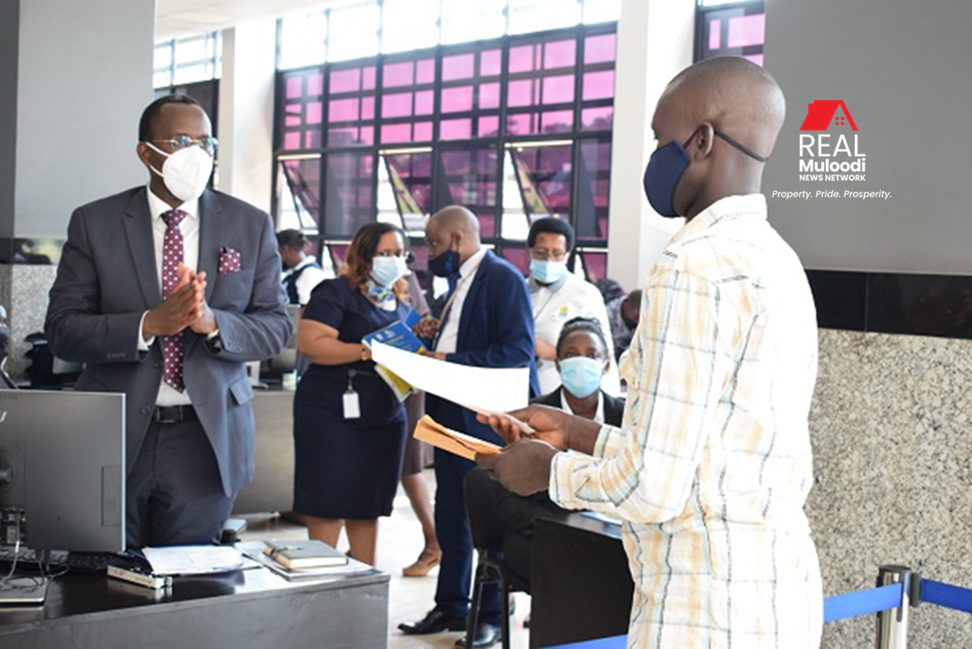UGANDA, Kampala | Real Muloodi News | In a significant move to counter rising revenue shortfalls and staff attrition, Uganda’s Finance Ministry has directed the Uganda Revenue Authority (URA) to devise urgent measures.
A concerning USh600 billion deficit in revenue collection between July and October of the current financial year prompted this directive, with projections indicating a potential shortfall of USh1 trillion by year-end.
Permanent Secretary Ramathan Ggoobi, in a letter dated December 7 to URA Commissioner General John Musinguzi, underscored the need for comprehensive measures to address this fiscal challenge.
The shortfall poses a threat to the government’s budget and service delivery capabilities. With a supplementary allocation of USh3.5 trillion already approved by Parliament on December 7, the warning about below-target cash inflows raises concerns about the broader financial landscape.
The revenue shortfall contrasts sharply with the government’s ambitious target of collecting USh29.7 trillion for the financial year, representing a USh4 trillion increase from the previous year.
The government’s revenue mobilisation efforts were expected to mitigate the impact of the World Bank’s freeze on new lending to Uganda due to the enactment of the Anti-Homosexuality Act in May.
PS Ggoobi, who also serves as the secretary to the Treasury, highlighted three potential areas of revenue leaks in his letter.
These include deductions and expenses claimed by multinational companies categorised as “others,” banking practices related to treasury bills, and tax evasion under the guise of informality.
One specific area of concern addressed in the letter is the scrutiny of the rental income tax regime.
Ggoobi emphasised the need for URA to investigate rental income tax collections to establish linkages between business income, employment income, and funding sources for constructing rental structures.
A study titled “Assessment of the Drivers of the Shadow Economy in Uganda” corroborated these concerns, revealing that formal entities often hide investments in the informal economy to earn taxable income while evading scrutiny.
The PS also highlighted commercial banks’ practices related to booking treasury bills expenses, noting that URA should disallow these expenses since treasury bills are subject to final Withholding Tax (WHT), making the expenses incurred on them non-deductible.
While the article did not provide URA’s response, officials are expected to present “administrative interventions” in meetings scheduled for the coming days to address revenue deficits and high staff turnover.
The revenue collection challenges mark a significant shift from URA’s performance in the previous financial year when it posted a USh57 billion surplus.
Following cumulative under-collections totalling USh3.5 trillion over three years, the government introduced measures such as ICT utilisation, tax exemption rationalisation, and reducing revenue leakages to enhance tax administration.
The government’s aim to widen the tax base and improve collections is integral to its goal of increasing the tax-to-GDP ratio to between 16 per cent and 18 per cent over the next five years.
PS Ggoobi’s directive to URA to task multinational companies on deductions and expense categorisation aligns with ongoing concerns about aggressive tax planning and illicit financial flows perpetuated by certain entities.
As URA engages in addressing these challenges, the government remains focused on implementing strategic initiatives to enhance revenue generation, strengthen tax compliance, and ensure sustainable fiscal management.
READ MORE LIKE THIS:
Govt Registers Revenue Shortfall of Shs1.78 Trillion in Eight Months
URA Falls UGX 900.81Bn Short of Revenue Collections Targets in First Half of FY2021/22
Rental Tax System in Final Stages as Uganda Faces Critical Budget Shortfalls




